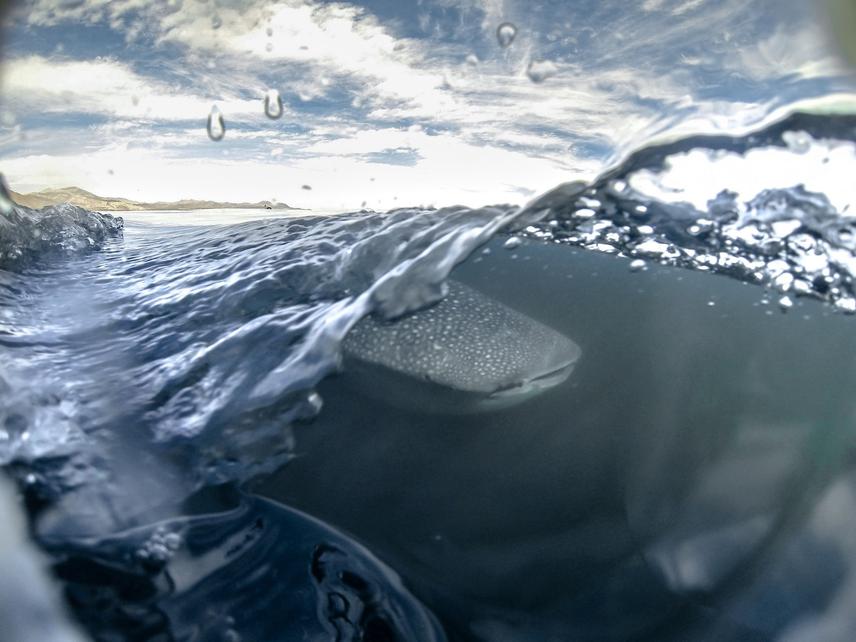Austin Nestor Montero Quintana
Our aim is to contribute to whale shark conservation, expanding the information on the ecological and socioeconomic impacts of the whale shark tourist's industry.
We are doing this by analysing the whale shark-tourist interaction and exploring the attributes that modify whale shark behaviour. Attributes can be of sharks (such as size and gender), attributes of the interaction (such as the length of the boat) and attributes of tourists (such as tourist intentions).
Alteration of whale shark behaviour may economically affect communities where ecotourism been developed; hence, we are also assessing how this affects communities’ economic contribution and sustainability for whale shark conservation.

Whale shark approaching.
The whale shark is a charismatic and endangered species, whose passive nature allowed the development of an ecotourism industry in Mexico. Limited information on the ecological and socio-economic impacts of this industry raises concerns over its sustainability. In this project, we will evaluate if tourism activity currently contributes to the conservation of the whale shark.
We have two main questions for our project. First, how does tourism affect whale shark behavior? Our prediction is that whale shark’s behavior will be affected by variables such as whale shark’s attributes (as size and gender), interaction attributes (as the length of the boat and number of swimmers), and tourists attributes (as intentions of tourists). Second, how does the behavior of the whale shark affect the economic contribution of the communities that work in the whale shark industry? For this question, the prediction is that the intensity of tourism can change the behavior of the whale shark to be more evasive and this could cause economic losses to communities taking advantage of the whale shark industry.
To know what factors disturb whale sharks in a human-shark interaction, we will film the interaction between sharks and swimmers and sharks and boats. To explore if there is a relationship between tourist attributes with whale sharks’ behavior we use surveys. Surveys structure includes:
a) previous knowledge of whale sharks,
b) degree of acceptance of the conduct code,
c) tourist expectations,
d) tourist concern about interaction with whale sharks
e) Whale shark’s behavior during the interaction. The surveys are presented in person to tourists at the end of their interaction. For those that cannot wait to fill the survey, an online option is available.
This project will contribute at different levels to the whale shark conservation. At the regional level, behavioral data will produce information to reduce the impact of tourism on the whale shark through proposals for the code of conduct. At the national level, it will generate information to sensitize the tour operators about the economic losses due to the effects on the behavior of the animals. At the international level, estimates of the economic contribution will generate information to demonstrate to whale shark fisheries the greatest advantages of the non-extractive use of the whale shark instead of an extractive form.